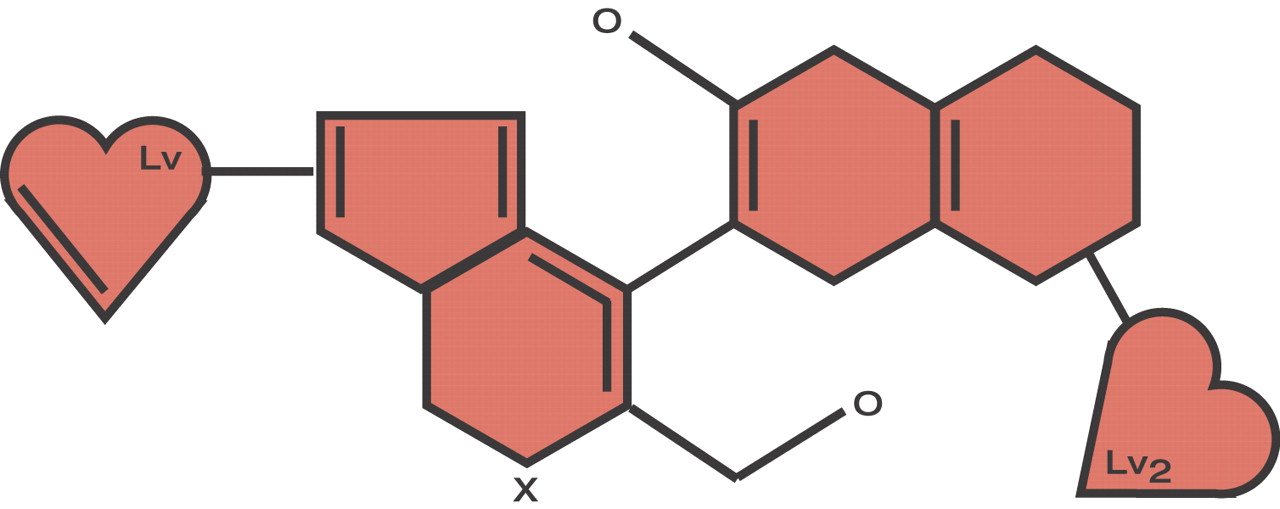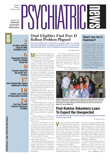When early February comes around, many people's thoughts turn to Valentine's Day and romance. The biological substrate of romantic love, however, has been mostly un-charted territory.
Now some researchers, appropriately from a country associated with romance—Italy—have explored the subject. And as they report in a study in press with Psychoneuroendocrinology, falling in love appears to be associated with elevated levels of nerve growth factor in the bloodstream.
Enzo Emanuele of the University of Pavia and colleagues suspected that a diversity of biological mechanisms might be involved in precipitating the mental state called “falling in love,” a state characterized by obsessive thinking about one's beloved, craving for union with him or her, euphoria, and increased energy. And one of the mechanisms that the researchers thought might be implicated are neurotrophins—brain chemicals that nourish nerves and that have been increasingly recognized as potential mediators of anxiety and other emotions.
The researchers measured blood levels of four kinds of neurotrophins—nerve growth factor, brain-derived neurotrophic factor, neurotrophin 3, and neurotrophin 4—in 58 subjects who had recently fallen in love and two control groups. One control group consisted of 58 individuals who were not engaged in a romantic relationship; the other control group consisted of 58 persons who had been involved in a romantic relationship for 2.5 years to 5.5 years. The subjects in love were likewise assessed for anxiety and depression with the State-Trait Anxiety Inventory and the Beck Depression Inventory and for the intensity of their romantic feelings with the Passionate Love Scale, thought to be a reliable means of measuring romantic love.
The researchers found no significant differences among the three groups with regard to blood levels of brain-derived neurotrophic factor, neurotrophin 3, and neurotrophin 4. However, blood levels of nerve growth factor were significantly higher in the subjects who had recently fallen in love than in the subjects who were not engaged in romantic relationship or long engaged in one.
Moreover, among subjects who had recently fallen in love, a significant positive link was found between blood levels of nerve growth factor and the intensity of romantic feelings as assessed by the Passionate Love Scale. This association held even when some potentially confounding variables such as age, gender, anxiety scores, and depression scores were taken into consideration.
Thus, “our data demonstrate for the first time that circulating levels of nerve growth factor, but not of other neurotrophins, are elevated among subjects in love,” Emanuele and his team concluded in their study report, “suggesting an important role for this molecule in the `social chemistry' of human beings. The specificity of nerve growth factor increase during early-stage love, which was independent from anxiety and/or depression scales, as well as from other neurotrophins, seems to suggest that this neurokine could be involved in the formation of novel bonds....”
Nonetheless, follow-up results from the study suggest that nerve growth factor does not play a major role in the maintenance of a romantic relationship.
Specifically, 39 of the 58 subjects who had recently fallen in love were still romantically involved a year or two later with the same partners with whom they had been involved at the start of the study. The researchers once again measured their blood levels of the four neurotrophins and used the Passionate Love Scale to assess their feelings of love. Results showed that both their Passionate Love Scale scores and nerve growth factor concentrations had decreased significantly from the start of the study. In contrast, their concentrations of the other three neurotrophins were similar to those observed during the first assessment.
How nerve growth factor might help people forge romantic bonds remains to be determined. Emanuele and his group suspect it might be by influencing various hormones. For instance, nerve growth factor is known to induce the release of the hormone vasopressin, and vasopressin in turn is known to play a pivotal role in the formation of social bonding.
The study was financed by the University of Pavia.
An abstract of “Raised Plasma Nerve Growth Factor Levels Associated With Early-Stage Romantic Love” can be accessed at<www.sciencedirect.com> by clicking on “Browse Journals,” “P,”“ Psychoneuroendocrinology,” and “Articles in Press.” ▪

